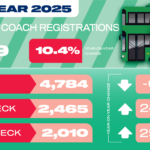Sometimes, we can’t see a crisis coming, which can make it difficult to plan for the future – especially financially. You may have a reduction in your income, or your rent may increase, or you may need to make urgent repairs to your home. Whatever the reason and whatever the crisis, money may be necessary to help you through.
We’ve seen what financial hardships individuals have suffered during the recent coronavirus pandemic. Some of us have struggled to pay bills, either through illness, being furloughed, or even losing our jobs. But there are options when situations like this occur – especially when it comes to dealing with your finances.
None of us could have planned for the pandemic, let alone any other crisis – but knowing what your financial options are can be a great way of preparing for the worst and providing you with some much needed reassurance, should that time ever come.
During the COVID-19 pandemic, around 70% of families have had to cut back on basic food and essentials – alongside this, half of these individuals were also falling behind on rent or bills. These are horrific statistics to read, however there are options to look into to ensure you and your family are supported financially during a crisis.
Logbook loans
If you own your car or van outright, or maybe you’re getting to the end of your vehicle finance agreement, you could be eligible to apply for a logbook loan. A logbook loan gives you the opportunity to borrow money against your vehicle – but without taking your vehicle away during the loan period. This means you can still use it as normal; it’s just the V5 registration form that is kept safe and sound. Your V5 registration document is also known as your logbook, and this is what the loan company will use to submit your loan. Once you’ve finished making the payments on your loan, the logbook will be returned to you – and you’ll still have ownership of your vehicle!
You can usually have the funds approved the same day from a logbook loan company, especially if you have all the necessary paperwork and details to hand. This is incredibly helpful if you are encountering a financial crisis and require immediate access to money. Having a poor credit history can mean accessing loans and credit can be difficult – but having an asset, such as a vehicle, provides you with collateral against the loan, and makes a logbook loan lender more willing to provide the funds. If you’re concerned about your credit score and applying through mainstream lenders, a logbook loan could be a great option for you.
As with most loan applications, there are some eligibility criteria you should consider before taking out a logbook loan:
- You own the car or vehicle outright – or your finance plan is almost coming to an end
- Your own name is on the V5 document (logbook)
- The car is insured, alongside you having a valid driving licence
- You’ve got a regular income coming in, or the person you’re applying with does (but government benefits are not allowed)
As is the case with most borrowing, you’ll need to pay interest back on top of the loan amount, so this is something to think about when applying for a logbook loan. You’ll be made fully aware of this before applying, however, and responsible lenders will check your affordability rating, so you know how much you can afford. This ensures you don’t end up in unnecessary debt.
Personal loans
If you’re going through a personal financial crisis, you might consider taking out a personal loan to help. There are lots of companies that provide personal loans, but not all are created equal. If you have poor credit, you might be tempted to apply for a payday loan, rather than applying to mainstream banks and building societies. Payday loans can come with very high levels of interest, however – which may worsen your credit score further.
You’re less likely to be approved for a personal loan from a high street lender because you’re not backed by any collateral, such as your vehicle or even a guarantor. Although this is frustrating, there are other options, such as logbook loans mentioned above.
Because there’s not collateral involved in a personal loan, they’re often referred to as ‘unsecured’ i.e. nothing is secured against the loan. The decision for your loan to be granted is based on whether or not you have a regular income and your credit rating.
Credit cards
If a loan doesn’t feel like the right option for you, then you could apply for a credit card to provide you with additional funds. This would allow you to pay for groceries, as opposed to bill payments. Each lender will have their own criteria for applying for their credit cards, and they’ll all differ on the amounts they’ll provide you with. If you do have a poor credit score, you may find your options are very limited when it comes to applying for a credit card.
Credit cards do have a downside; they often come with high interest rates, which can make paying them back very difficult. If you only make the minimum payment each month, your interest will rack up and leave you with more debt to pay back over a longer period of time. This can be frustrating when you’re handling a personal crisis.
They’re also tempting too, especially if your credit amount is increased. You may feel like you could spend more, even after your personal crisis is over. This could lead to more debt being built up, leaving you in a worse position than before. These are all serious considerations to take into account.
Home equity loans
Usually when you purchase a home, you take out a mortgage to cover the monthly costs. Not many of us end up saving the full amount for a house and usually save around a 10 – 15% deposit. A mortgage is a loan secured against the house, so that you can make regular, usually monthly, payments. If you ever need to, you can take out a second mortgage, often called a home equity loan, which allows you to borrow a lump sum of money against your house.
However much you need to borrow depends on the value of your property. But other things can stop you from being approved for a home equity loan too, such as a poor credit rating. This might make you consider other options, rather than using your home as your loan collateral.
BIO
Auto Advance is a logbook loan provider, regulated by the Financial Conduct Authority.


















